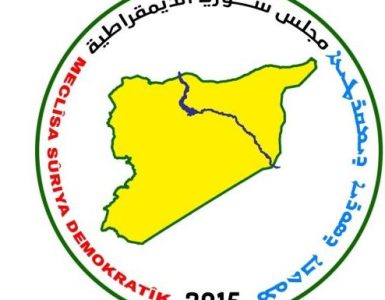The Union of intellectuals in Raqqa called for a feminist dialogue meeting where the women participants agreed that decentralization is an urgent need in light of the Syrian situation and that it is the start for resolving the crisis on Saturday at the one of the halls of the Syrian city of Raqqa.
This meeting was attended by a group of women of the Syrian community from various Syrian regions and there were participations via video applications from home and abroad and from Arab countries such as Lebanon, Egypt, Morocco and Sudan.
There were two basic themes, in which the first one discussed the inclusive national identity, while the second one dealt with “the role of women in the democratic transition towards decentralization,” where a paper on decentralization was presented that was read by Samah Al-Shaarani, a member of the Syrian Women’s Council.
The paper contains a historical introduction on decentralization in Syria, its six basic principles, what can be done, its necessity for the unity of Syrian territories, its administrative need, as well as its democratic necessity.
Amani Nafia, a member of the Lebanese Women’s Democratic Rally, said that the participation of pivotal women accelerates the process of recognizing the fundamental rights and freedoms of peoples and cultures, and this achieves decentralization based on pluralism and diversity, and she stressed that they are inspired by the experience of women in northeastern Syria in order to get their rights.
In turn, Sarfraz Shareef, the main coordinator of the Raqqa region within the coalition of civil society organizations, cited Queen Zenobiya, the Queen of Palmyra who made Palmyra reach to its peak of prosperity and the competition of Rome, and that women and men complement each other and are not in a state of competition, but they must cooperate to face obstacles and difficulties.
For her part, Sabah Al-Jumaa touched upon the system of joint presidencies, which enabled women to participate in all fields of life, and discussed the application of decentralization with its political, administrative and financial dimensions, its basic principles, the need of Syrian society for a new social contract and the access to democratic transition.
Hayat Al-Shein, a member of the National Front of Egyptian women participating in the dialogue forum, also she praised the need to achieve decentralization and democracy within the framework of a unified Syria, especially in light of the current Syrian reality, thus building society and achieving internal development and stability.
It is noteworthy that this feminist dialogue meeting was parallel to the feminist dialogue forum held in November last year in Aleppo, which is trying to bring together Syrians to reach consensus, discuss problematic issues and accelerate the peaceful resolution for the Syrian people’s crisis which lasted about twelve years.





